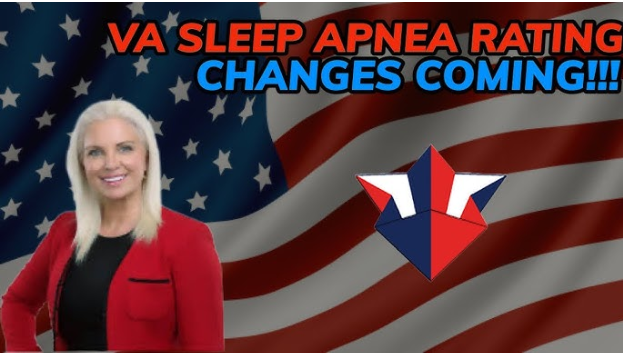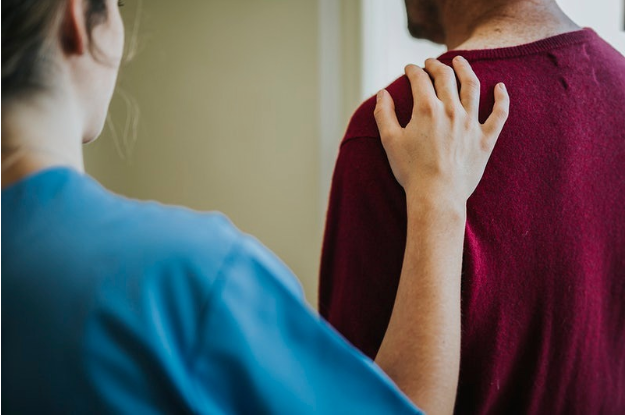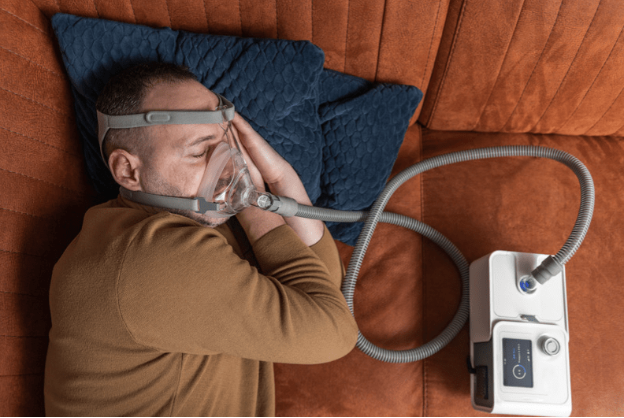In va sleep apnea changes 2024, there are significant updates to the Veterans Affairs (VA) system, particularly regarding sleep apnea. Veterans who suffer from sleep apnea may notice some important changes that could affect their benefits and access to care. These updates are crucial for those who have been diagnosed with sleep apnea and are seeking assistance from the VA. Whether you are a veteran newly diagnosed with sleep apnea or someone who has been receiving benefits for years, understanding these changes is important.
Sleep apnea is a serious condition that causes interruptions in breathing during sleep. The VA has specific guidelines for diagnosing and compensating veterans with sleep apnea, and these have been adjusted in 2024. It’s essential to know how these changes may impact your benefits, care, and treatment options. In this article, we will explore the key updates to VA sleep apnea policies and what they mean for veterans.
Understanding Sleep Apnea and Its Impact
Sleep apnea is a medical condition where a person’s breathing repeatedly stops and starts during sleep. This condition can lead to poor sleep quality, which may result in extreme tiredness during the day, difficulty focusing, and other health problems. There are two main types of sleep apnea:
- Obstructive Sleep Apnea (OSA): This is the most common type, caused by a blockage of the upper airway during sleep.
- Central Sleep Apnea: This type happens when the brain fails to send the correct signals to the muscles that control breathing.
Veterans who experience sleep apnea may find that their symptoms get in the way of their daily lives. It can affect work performance, relationships, and overall well-being. This is why the VA offers support for veterans diagnosed with sleep apnea, including compensation for the disability.
VA Sleep Apnea Changes 2024: New Guidelines

The most notable update to VA sleep apnea guidelines in 2024 is related to the way veterans with sleep apnea are evaluated and compensated. These changes aim to make the process more streamlined and responsive to the needs of veterans.
- Updated Compensation Rates: The VA has adjusted the compensation rates for veterans diagnosed with sleep apnea. Veterans can now receive higher compensation if their condition is considered more severe.
- Expanded Eligibility: In the past, veterans needed to prove that their sleep apnea was directly related to their military service. However, in 2024, the criteria for establishing a connection to service have been expanded, making it easier for some veterans to qualify for compensation.
- Sleep Studies and Diagnosis: Veterans may no longer need to complete a sleep study to receive benefits, depending on the severity of their symptoms. This change aims to make the process quicker for veterans who are clearly experiencing sleep apnea-related issues.
These changes were made to improve access to benefits and help veterans get the care they need more efficiently.
The Role of Sleep Studies in Diagnosis
Sleep studies have long been an essential part of diagnosing sleep apnea. However, with the 2024 changes, the VA has revised its requirements for veterans seeking compensation for sleep apnea. Now, a sleep study may not be required for veterans who have a strong history of symptoms and can provide sufficient medical evidence.
- Home Sleep Testing: The VA now allows for home sleep tests in some cases. This is a less expensive and more convenient option compared to traditional sleep studies done in a sleep center.
- Veteran’s Medical Records: Veterans can use their medical records to demonstrate symptoms of sleep apnea, such as excessive daytime sleepiness, difficulty concentrating, and loud snoring.
- Automatic Diagnosis: In certain cases, if a veteran’s medical history and symptoms clearly show signs of sleep apnea, a doctor may make an automatic diagnosis without the need for additional testing.
These changes should help speed up the process for veterans seeking benefits for sleep apnea.
How the VA Determines Sleep Apnea Severity
One important aspect of the 2024 changes is how the VA determines the severity of sleep apnea and the level of compensation. Sleep apnea is typically rated based on its severity, with higher ratings leading to higher compensation.
- Mild Sleep Apnea: Veterans with mild symptoms, such as occasional snoring or daytime fatigue, may receive a lower rating.
- Moderate Sleep Apnea: Veterans with moderate symptoms, such as disrupted sleep and regular daytime sleepiness, may receive a middle-tier rating.
- Severe Sleep Apnea: Veterans with severe symptoms, such as using a CPAP machine or experiencing extreme fatigue, may qualify for the highest rating and compensation.
The 2024 changes make it easier for veterans to prove the severity of their condition, particularly if they already use a CPAP machine or have other clear symptoms of severe sleep apnea.
CPAP Machines and VA Support
For veterans with moderate to severe sleep apnea, the Continuous Positive Airway Pressure (CPAP) machine is often prescribed as a treatment. In 2024, the VA has updated its policies on providing CPAP machines and other treatments for sleep apnea.
- CPAP Coverage: Veterans who require a CPAP machine will have their device provided by the VA, along with necessary accessories like masks and tubing.
- Ongoing Support: The VA also offers ongoing support for veterans who use CPAP machines, including regular checkups and machine maintenance to ensure the device is working properly.
- Alternative Treatments: If a CPAP machine is not suitable, veterans may be eligible for other treatments, such as surgery or dental appliances.
These updates ensure that veterans have access to the best possible treatments to manage their sleep apnea.
The Importance of Continuing Care and Follow-Up

Sleep apnea is a long-term condition that requires ongoing care and management. The 2024 changes to VA policies emphasize the importance of follow-up care for veterans with sleep apnea.
- Regular Checkups: Veterans with sleep apnea are encouraged to visit their healthcare provider regularly to monitor their condition and adjust treatment as needed.
- Mental Health Support: The VA is also focusing on providing mental health support for veterans who experience anxiety or depression related to their sleep apnea symptoms.
- Lifestyle Modifications: The VA offers programs to help veterans make lifestyle changes, such as losing weight or quitting smoking, which can help improve sleep apnea symptoms.
Continuing care is vital for managing sleep apnea and improving the overall quality of life for veterans.
Conclusion
In conclusion, the VA sleep apnea changes in 2024 provide significant improvements in the way veterans are diagnosed, treated, and compensated for sleep apnea. The updated guidelines make it easier for veterans to receive compensation for their condition, especially by expanding eligibility criteria and reducing the need for sleep studies. With increased support for CPAP machines, alternative treatments, and ongoing care, veterans are better equipped to manage their sleep apnea symptoms and improve their overall well-being.
These changes reflect the VA’s commitment to providing better care and support for veterans. If you are a veteran with sleep apnea, it is important to stay informed about these updates to ensure you are receiving the benefits and treatment you deserve.
FAQs
Q: What are the changes to VA sleep apnea in 2024?
A: The VA has updated its guidelines, including higher compensation rates, expanded eligibility, and reduced requirements for sleep studies in certain cases.
Q: Do I need a sleep study to qualify for VA sleep apnea benefits?
A: Not always. In some cases, if symptoms are clearly present, veterans can qualify without a sleep study, using their medical records as evidence.
Q: How does the VA determine the severity of sleep apnea?
A: The VA rates sleep apnea based on severity, with higher ratings for veterans using CPAP machines or experiencing extreme fatigue and other severe symptoms.
Q: Will the VA provide a CPAP machine?
A: Yes, veterans who require a CPAP machine will receive one from the VA, along with necessary accessories and ongoing support.
Q: How can I get help managing sleep apnea through the VA?
A: The VA provides regular checkups, mental health support, and programs for lifestyle modifications to help manage sleep apnea symptoms effectively.


